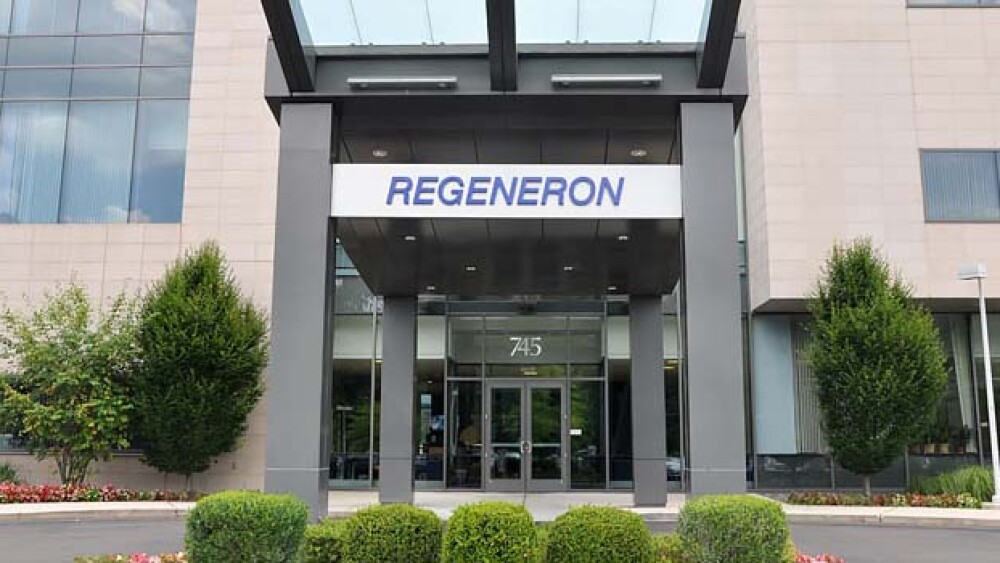Regeneron indicated that because of disappointing results for two Phase II trials, it was ending its development of angiopoietin2 antibody nesvacumab as an addition to Eylea.
Regeneron Pharmaceuticals indicated that because of disappointing results for two Phase II trials, it was ending its development of angiopoietin2 (Ang2) antibody nesvacumab as an addition to Eylea (Iaflibercept).
Regeneron, along with Bayer, markets Eylea for wet age-related macular degeneration (AMD), macular edema following retinal vein occlusion (RVO) and diabetic macular edema (DME) and diabetic retinopathy (DR) in patients with DME. The companies were evaluating whether nesvacumab improved Eylea in patients with DME and wet AMD. The primary endpoints for the trials were change in best-corrected visual acuity (BCVA) between week 12 and 36.
“We knew from the start that it would be difficult to improve on the already high bar set by Eylea, which is the market-leading branded therapy in its approved indications, providing significant improvements in vision and strong long-term outcomes in patients with wet AMD and DME,” said George Yancopoulos, Regeneron’s president and chief scientific officer, in a statement. “We expect to report results in the first half of 2018 from our Eylea Phase III study in diabetic retinopathy, which represents a growing patient population with significant need. We also continue to invest in additional R&D approaches in ophthalmology with the goal of providing new innovations to patients with serious vision-threatening diseases.”
In early November, Novartis provided insight on its Phase III trial evaluating RTH258 (brolucizumab), which the company hopes will beat out Eylea. It announced results from head-to-head trials, HAWK and HARRIER, and presented the data at the American Academy of Ophthalmology (AAO) 2017 Annual Meeting.
“HAWK and HARRIER demonstrated that brolucizumab has the potential to positively impact disease management and provide long-lasting treatment effect,” said Pravin Dugel, managing partner, Retinal Consultants of Arizona, and clinical professor at the Roski Eye Institute, Keck School of Medicine, University of Southern California, and principal investigator of both trials, in a statement. “HAWK and HARRIER showed that brolucizumab outperformed aflibercept on disease activity assessments, including key measures of disease progression seen on OCT, which forms the basis of a clinician’s treatment decisions. Importantly, improvement in these key OCT measures was seen as early as week 16 and maintained at week 48, with a majority of brolucizumab patients on a 12-week treatment interval.”
The bottom line seems to be that with Novartis moving toward a product that is better than Eylea, Regeneron and Bayer were unable to improve on Eylea. John Carroll, writing for Endpoints News, says, “Novartis is betting that moving patients from once every 8 weeks for Regeneron’s flagship therapy to a 12-week regimen will win over a big slice of the market. Regeneron, meanwhile, is left with their own program to demonstrate success with a quarterly injection of Eylea. Back-to-back setbacks like this are unusual for Regeneron, which has enjoyed a series of development successes.”
About 14 months ago, Regeneron’s rinucumab, an anti-PDGFR-beta antibody, that was being tested to improve on Eylea, failed in clinical trials.
Eylea is a vascular endothelial growth factor (VEGF) inhibitor that is injected into the eye. It blocks the growth of new blood vessels and decreases fluid’s ability to pass through blood vessels in the eye. Nesvacumab is an antibody to angiopoietin2 that was originally designed as a cancer treatment.





